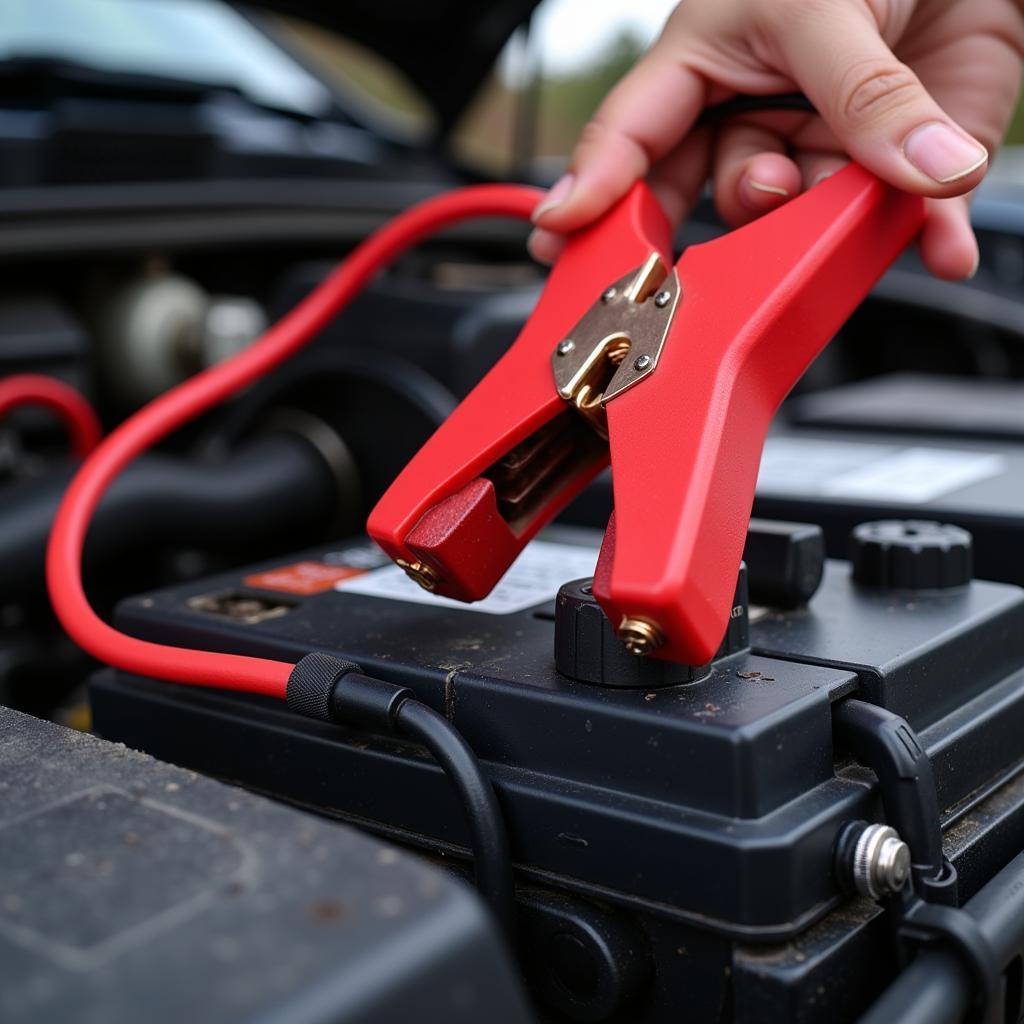Your car won’t start. It’s a frustrating situation that every driver dreads. Whether you’re late for work, stranded on the side of the road, or simply can’t get your errands done, a car that refuses to start throws a wrench into your plans. This guide will provide a comprehensive overview of the common causes of this problem and offer practical solutions for troubleshooting and getting your vehicle back on the road. If you are experiencing issues such as stepping on the gas and nothing happening, this guide can also help. Check out this article on what to do if your car problem involves stepping on the gas and nothing happens: car problem step on gas and nothing happens.
Common Reasons Your Car Won’t Start
There are numerous reasons why your car might not start, ranging from simple issues to more complex mechanical problems. Some of the most common culprits include a dead battery, a faulty starter, a bad alternator, a failing ignition switch, or even something as simple as a loose or corroded battery connection. Identifying the specific cause can save you time, money, and unnecessary stress. For insights on car chassis issues, check out the car chassis problem.
 Dead Car Battery Jump Start
Dead Car Battery Jump Start
Checking the Battery: The First Step When Your Car Won’t Start
The battery is the heart of your car’s electrical system. When it fails, your car won’t start. A simple test with a multimeter can reveal if your battery is the problem. A reading below 12.4 volts usually indicates a weak or dead battery.
How to Test Your Car Battery
- Turn off all electrical accessories in your car.
- Connect the red lead of your multimeter to the positive (+) terminal of the battery.
- Connect the black lead to the negative (-) terminal.
- Observe the reading on the multimeter.
Beyond the Battery: Other Potential Culprits if Your Problem Car Won’t Start
If the battery checks out okay, the problem might lie elsewhere. A faulty starter can prevent the engine from cranking, while a bad alternator can lead to a depleted battery. Other potential issues include a malfunctioning ignition switch, a clogged fuel filter, or even a problem with the car’s computer system. If you’re facing issues with CarPlay, you can find helpful information in this article: probleme car play.
Testing the Starter Motor
A clicking sound when you turn the key can indicate a failing starter motor. A more definitive test involves using a test light or multimeter to check for power at the starter solenoid when the key is turned to the “start” position.
Problem Car Won’t Start: DIY Fixes and When to Call a Pro
Some starting problems, like a dead battery or loose connections, can be easily fixed at home with basic tools. However, more complex issues like a faulty starter or alternator often require the expertise of a qualified mechanic. Knowing when to DIY and when to seek professional help can save you time and potentially prevent further damage to your vehicle. This article offers further diagnostic advice: what is the problem if the car doesn’t start.
“A regular maintenance schedule is the best way to prevent many starting problems,” says John Smith, ASE Certified Master Technician. “Simple checks like ensuring clean battery connections and keeping your battery properly charged can make a world of difference.”
Preventing Future Starting Problems: Regular Maintenance is Key
Regular maintenance is crucial for preventing future starting problems. This includes routine battery checks, alternator inspections, and keeping your car’s electrical system in good working order. Additionally, addressing any underlying mechanical issues promptly can help avoid more significant problems down the road. Learn more about reliable vehicles here: which car has least problems.
“Don’t ignore warning signs like slow cranking or dimming headlights,” advises Jane Doe, automotive electrical specialist. “These can be early indicators of a failing battery or alternator.”
Conclusion
A problem car that won’t start can be a major inconvenience. By understanding the common causes and following the troubleshooting steps outlined in this guide, you can often pinpoint the problem and get your car running again. Remember, regular maintenance is the best defense against future starting problems.
If you’re still experiencing issues, don’t hesitate to connect with us for expert assistance. We’re here to help you get back on the road!
Contact AutoTipPro at +1 (641) 206-8880. Our office is located at 500 N St Mary’s St, San Antonio, TX 78205, United States.
FAQ
- What’s the most common reason a car won’t start? A dead battery is often the culprit.
- How can I tell if my starter is bad? A clicking sound when you turn the key is a common sign.
- How often should I have my car battery checked? Every six months or at every oil change is a good practice.
- Can a bad alternator prevent my car from starting? Yes, a faulty alternator can drain the battery, leading to starting problems.
- What should I do if my car won’t start even after a jump-start? It’s time to call a mechanic.
- Is it safe to jump-start my car myself? Yes, if done correctly. However, it’s important to follow safety precautions.
- How can I prevent my car battery from dying? Regularly driving your car and avoiding leaving electrical accessories on for extended periods can help.





Leave a Reply